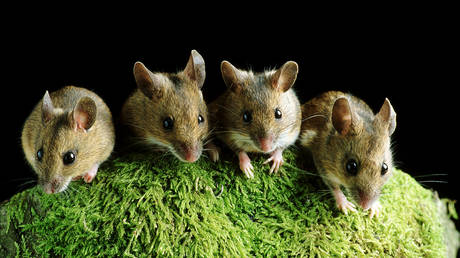
Researchers’ findings have backed the theory that “Omicron may have evolved in a non-human animal species”
The study into Omicron, published in the Journal of Biosafety and Biosecurity, found that “coronavirus slowly accumulated mutations over time in mice” before the virus was then “transmitted back to humans by reverse zoonotic.”
The research, led by Dr. Xu Jianguo, who works for the National Institute for Communicable Diseases Control and Prevention of China, has identified mice as the “most likely intermediate host.” Researchers established that the “mutations profile” of the strain “shows that the virus has adapted to infect the cells of mice.”
While scientists have established Omicron developed from a strain that circulated in mid-2020, they have been seeking an explanation for the lack of an intermediate version of Omicron within humans, raising the potential that it evolved within an animal.
The discovery could “pose new challenges in the prevention and control of the epidemic,” as the risk of new Covid strains circulating within the animal kingdom creates added uncertainty in the fight against the virus.
Proposing possible solutions to the issue of Covid strains circulating within non-human species, researchers called for greater “surveillance of animals, especially rodents,” due to their close proximity with humans.




